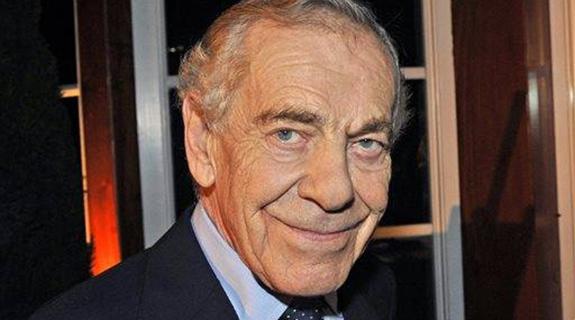Morley Safer, an Emmy-winning newsman, CBS correspondent who brought the brutality of the Vietnam War to American televisions, and an icon on 60 Minutes for 46 years, died Thursday in his home in Manhattan.
He was 84.
Safer, who was in declining health, announced his retirement last week on May 11. CBS News aired a special broadcast to honor him on Sunday, May 15, which he watched from his home.
Safer’s 61-year career is the longest-ever run anyone has ever had on primetime network television. From social injustices, to the Orient Express to abstract art, he was not afraid to ask the hard questions, and goes down in history as one of television’s most celebrated journalists.
He may be best known for exposing a military operation in Vietnam that was influential in changing Americans’ view of the war.
“Morley was one of the most important journalists in any medium, ever,” said CBS Chairman and CEO Leslie Moonves. “He broke ground in war reporting and made a name that will forever be synonymous with 60 Minutes. He was also a gentleman, a scholar, a great raconteur — all of those things and much more to generations of colleagues, his legion of friends, and his family, to whom all of us at CBS offer our sincerest condolences over the loss of one of CBS’ and journalism’s greatest treasures.”
Safer left a lasting impression in 1965 with a report on CBS Evening News With Walter Cronkite. During the Vietnam War Safer accompanied U.S. Marines on a search-and-destroy mission in the small villages that made up Cam Ne. His report, captured on film, showed Marines using cigarette lighters to burn thatched roof huts to the ground, despite no resistance from villagers.
The unsettling details broadcast in U.S. living rooms marked a turning point in public opinion of the war, and evokedganger from the Pentagon, which accused him of undermining the war effort and cast him as a communist.
Born in Toronto in 1931, Safer worked at news organizations in Canada and England before being hired by CBS News’ London bureau in 1964. In 1965 he opened the CBS News bureau in Saigon, serving two tours in the war, then went on to become CBS News’ London bureau chief in 1967.
He joined 60 Minutes in 1970, where he remained for 46 years.
Safer won his first Emmy in 1971 for his 60 Minutes report on the Gulf of Tonkin incident that sparked America’s war in Vietnam, and he became a staple of the program.
With a grand total of 919 stories — from his first in 1970 about U.S. Sky Marshals to his last story in March, a profile of Danish architect Bjarke Ingels — Safer was a master storyteller.
His 1975 interview with First Lady Betty Ford shocked the nation as she said she would think it normal if her 18-year-old daughter were having sex, which led to a discussion about drugs and abortion. Safer’s 1983 segment Lenell Geter’s in Jail, about a young black man serving life for armed robbery in Texas, documented new evidence which led to Geter’s release from prison, and exposed a faulty justice system.
His 1993 report Yes, But is it Art? irked the modern art community, while his 2001 piece School for the Homeless about separate schools for homeless children won him the Robert F. Kennedy Journalism Award for domestic television.
Safer also delved into quirky stories and curious tales, like the national hobby of tango dancing in Finland, and artists and cowboys in Marfa, Texas. He created buzz in the fashion industry with a profile on Vogue’s elusive Anna Wintour, and later in his career he appeared on TV shows and films related to journalism, including playing himself on a Murphy Brown episode, as well as in the film Morning Glory.
“Morley Safer helped create the CBS News we know today,” CBS News President David Rhodes said. “No correspondent had more extraordinary range, from war reporting to coverage of every aspect of modern culture. His writing alone defined original reporting. Everyone at CBS News will sorely miss Morley.”
He tweeted his final tweet on Sunday:
“It’s been a wonderful run, and I want to thank the millions of people who have been loyal to our @60Minutes broadcast. Thank you!”
READ MORE: CBS, New York Times, Variety
Tags:













































__twocolumncontent.jpg)











